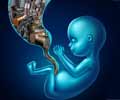Diet and exercise can influence the risk of cognitive decline (CD) and dementia by influencing a specific brain mechanism.

‘Diet and exercise can influence the risk of cognitive decline (CD) and dementia by influencing hippocampal neurogenesis (the process by which the brain produces new brain cells) long before their onset.
’





A total of 525,315 people are living with a dementia diagnosis in the UK in 2020 as per the Alzheimer’s Research UK. And the rates of cognitive decline and dementia are expected to triple in prevalence by 2040. Mechanism of Cognitive Decline
The study team investigated the blood samples of 418 French adults over the age of 65 years 12-years prior to CD and dementia diagnosis. The blood was then tested on human hippocampal stems cells to examine the impact of diet and exercise on hippocampal neurogenesis.
The sociodemographic details of the participants along with the incidence of cognition status and dementia were also measured every 2 to 3 years over a 12-year period.
It was found that 12 years prior to diagnosis, both CD and Alzheimer’s were associated with levels of neural stem cell death. And the exercise, nutrition, vitamin D levels, carotenoid, and lipid levels were associated with the rate at which cells die off.
Advertisement
Biomarkers for CD
Advertisement
This suggests that altered neurogenesis in the brain could potentially represent an early biomarker for both CD and dementia. This may represent an effective early preventative strategy against these deficits.
Source-Medindia














